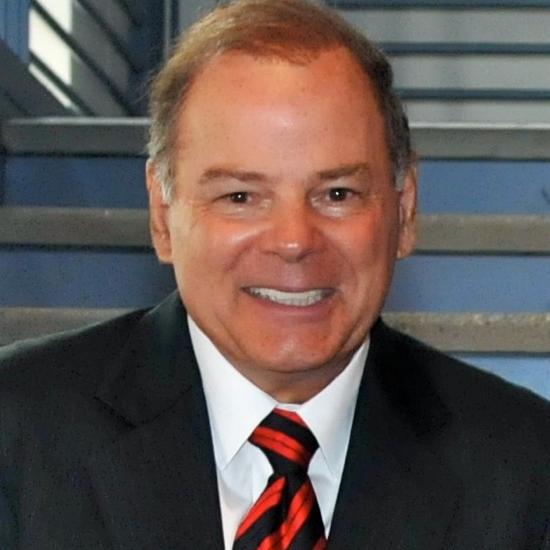Keynote Speakers

Post-Pandemic Realities of Recruitment and Retention
Distinguished Professor Emeritus, University of Colorado, USA
Cofounder, University of Colorado Denver Business School, USA
Professor Wayne Cascio is a Distinguished Professor Emeritus at the University of Colorado, and a cofounder of the Business School of the University of Colorado Denver. He is a former president of the Society for Industrial and Organizational Psychology and has served as a member of the Academy of Management’s Board of Governors. He is a Fellow of the National Academy of Human Resources, the Academy of Management, the American Psychological Association, and the Australian Human Resources Institute. Professor Cascio received the Distinguished Career award from the HR Division of the Academy of Management in 1999; an honorary doctorate from the University of Geneva, Switzerland, in 2004; and the Michael R. Losey Human Resources Research Award from the Society for Human Resource Management in 2010. In 2013, he received the Distinguished Scientific Contributions Award from the Society for Industrial and Organizational Psychology, and in 2016, by a vote of 90 countries, he received the George Petitpas [Lifetime Achievement] Award from the World Federation of People Management Associations. In 2020 he received the Ulrich Impact Award from the HR Division of the Academy of Management for his research that links theory to practical applications.
Currently he serves as a consulting editor of the Journal of International Business Studies (JIBS), and from 2007 to 2014 he served as a senior editor of the Journal of World Business. He has consulted with a wide variety of private- and public-sector organizations on six continents, and periodically he testifies as an expert witness in employment discrimination cases. Professor Cascio is an active researcher, writer, and speaker. He has published more than 200 articles and book chapters, and 33 books, including Managing Human Resources (12th ed., 2021), Investing in People (with John Boudreau and Alexis Fink, 3rd ed., 2019), Applied Psychology in Talent Management (with Herman Aguinis, 8th ed., 2019), and Short Introduction to Strategic Human Resource Management (with John Boudreau, 2012). He has delivered more than 750 presentations to professional and business audiences worldwide.
The Covid-19 pandemic has led employers as well as employees to reconsider where, when, and how work gets done. As a result, many employees have thought deeply and with “Covid clarity” about the kind of purpose and meaning they want from work and life. As a result, growing numbers of them are quitting their jobs in search of work arrangements that better fit their needs and wants. This presentation will examine what leading firms – both large and small – are doing to attract and retain top talent as they face the new realities of employment in a post-pandemic world.

Hong Kong Employment Outlook 2030: What Current Trends Suggest
Professor Emeritus, Hong Kong Baptist University
Founder and Lead Consultant, RC Talent Management Professionals Ltd.
Professor Randy Chiu (PhD, SPHR, FIHRM) dedicates his professional life in HRM education. He is currently a Professor Emeritus at Hong Kong Baptist University and a Visiting Professor at Hong Kong Metropolitan University. Professor Chiu has extensive experience in administration and management consulting during the last 30 years. He has given more than 100 talks and published 100 academic papers. He was awarded the Outstanding Human Resource Educational Elite in Greater China Award, Outstanding Contribution to HR Award and the Medal of Honor by the Hong Kong SAR Government in 2012.
Professor Chiu is often invited to serve as panel judge/adjudicator for various HR competitions/contests and now sits on various committees in Qualifications Framework and Hong Kong Council of Academic Accreditation and Vocational Qualifications. As a management consultant specializing in HRM and labor relations, he spends a lot time with clients assisting them to develop HR strategy, resolve people issues, nurture an engaging workforce, and deal with labor disputes.
The Covid-19 pandemic has led employers as well as employees to reconsider where, when, and how work gets done. As a result, many employees have thought deeply and with “Covid clarity” about the kind of purpose and meaning they want from work and life. As a result, growing numbers of them are quitting their jobs in search of work arrangements that better fit their needs and wants. This presentation will examine what leading firms – both large and small – are doing to attract and retain top talent as they face the new realities of employment in a post-pandemic world.

Managing talent: Contemporary challenges and opportunities
Professor of HRM and Organization Studies
University of Nottingham
Professor Ken Kamoche is Professor of HRM and Organization Studies and Director of the Africa Research Group at the University of Nottingham, UK. He was born and raised in Kenya, and educated at the University of Nairobi and the University of Oxford where he was a Rhodes Scholar. He teaches HRM and the management of organizations. His research has been published widely in journals such as the Journal of Management Studies, Organization Studies, Human Relations, British Journal of Management and the Human Resource Management Journal. He has also authored two books and co-edited four. His current research interests are knowledge management/appropriation particularly in ‘peripheral contexts’, Africa-China business relations, and talent management in the international context.
The Covid-19 pandemic has led employers as well as employees to reconsider where, when, and how work gets done. As a result, many employees have thought deeply and with “Covid clarity” about the kind of purpose and meaning they want from work and life. As a result, growing numbers of them are quitting their jobs in search of work arrangements that better fit their needs and wants. This presentation will examine what leading firms – both large and small – are doing to attract and retain top talent as they face the new realities of employment in a post-pandemic world.